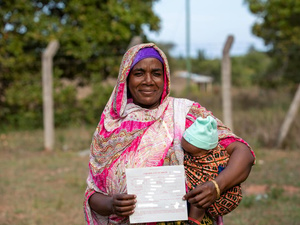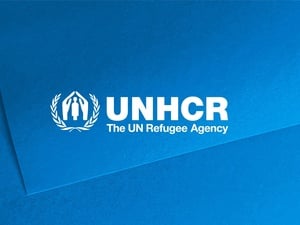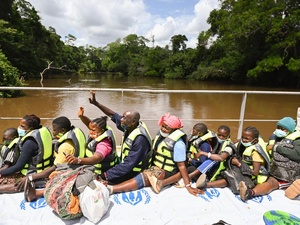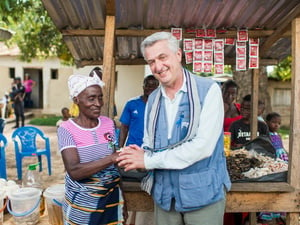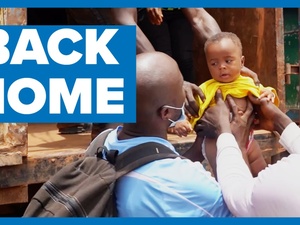Liberia: UNHCR forced to reduce staff
Liberia: UNHCR forced to reduce staff
The highly volatile situation in Liberia has forced UNHCR to reduce staff in several key refugee-hosting areas, hampering our ability to help thousands of people who have fled the conflict in neighbouring Côte d'Ivoire.
UNHCR has only a few local staff in Zwedru, which hosts a transit centre for 8,000 Ivorians and other West Africans who fled western Côte d'Ivoire. We have pulled all our staff out of Toe Town, 80 kilometres to the north, after a February 28 attack in the area left three aid workers dead and dispersed 2,500 people hosted in our transit centre. Some 740 of these people have now reported in Zwedru but we are still concerned about the whereabouts of the others. Some might have fled towards the Ivorian border.
For security reasons we have also reduced our staff in Harper, in Mariland district on the Atlantic coast. There are reports that some Liberians who had recently repatriated with UNHCR have now gone back to Côte d'Ivoire, finding conditions in Liberia too harsh to endure. UNHCR has also reduced its staff in Saclepea, in Nimba County (near the border with Guinea) because of the reported escalation of fighting in Liberia's central region, leaving only local staff there.
Meanwhile, LURD (Liberians United for Reconciliation and Democracy) rebels have reportedly advanced eastwards towards the town of Gbarnga, in Bong County. The town of Gbarnga is reported to be deserted except for fighters. This could cut off access from Saclepea to the main road leading to Monrovia.
Since November, UNHCR has been assisting close to 95,000 people in five transit centres in Liberia's eastern border areas. They include nearly 45,000 Liberians returning home from Côte d'Ivoire, close to 40,000 Ivorian refugees and 13,000 other West African nationals attempting to return to their countries. UNHCR has been assisting West African migrant workers (Burkinabè, Malians and others) since the International Organisation for Migration, which normally handles such cases, has no operational presence in the area.


